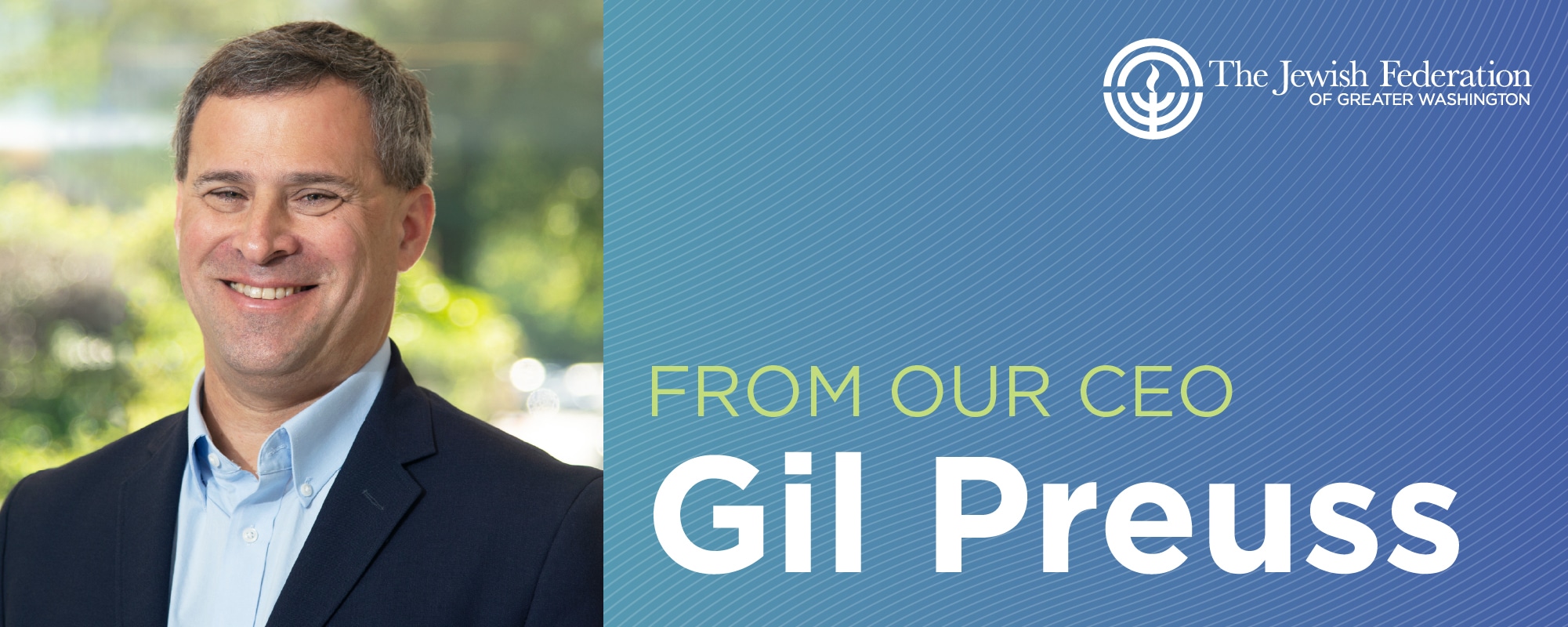-
01 June 2020

Over the past few months, I have written about the tendency to turn inward, to isolate in our homes and protect ourselves, our families, and our neighbors from the threats of the coronavirus pandemic. With the world outside seemingly random and uncontrollable, many in our community have built safe and contained bubbles. For some of us, our worlds became smaller, but in certain ways also enriched.
It has also become increasingly clear that the ability to turn inward is not available to all. As we have seen locally and around the country, a disproportionate number of people of color are getting sick and dying from COVID-19. By working in jobs that are essential for society and for their own lives, many individuals are unable to work from home or isolate, putting themselves and their families at great risk. As people across the country have, by necessity, retreated into smaller circles, the coronavirus pandemic continues to reveal the gaps that persist in American society.
And with the murder of George Floyd, our country’s inequalities have been brought forcefully into broad daylight, shifting our attention away from our own daily struggles with life in quarantine to the ongoing and unending plight of people of color under systemic racism.
Yes, we still have more work to do in the fight against the coronavirus pandemic. But we must also confront the core social ills that result in people of color being murdered.
For me, as both a communal leader and an individual, the only way forward is to clarify my values and articulate my responsibilities in helping to create the change our country so desperately needs.
- I believe in the dignity of all human beings and that all people are created in God’s image.
- I believe that we must support our families, neighbors, and all of the individuals who collectively make up the community among us.
- I believe that our understanding of the world is biased by the experiences we grew up with.
- I believe that we are all imperfect, but that does not negate our need to work towards a better world.
- I believe that, as Jews, we must engage with the world around us. Indeed, our tradition teaches us that despite our imperfections and limitations, we all have a duty to shape our societal ambitions and impact our future.
- I believe we are responsible for acknowledging what we don’t know.
- I believe we are responsible for listening more and asking more questions.
- And I believe that we are responsible for understanding how our actions—and inaction—sustain the racism and prejudice in our community and society.
The murders of George Floyd and many other people of color across the United States serve as a painful message that, while we will get through the pandemic, the issues that have plagued our country for centuries remain. Their murders exemplify our failure to address chronic and systemic racism. We cannot afford to lose focus on these life-and-death issues—even if we are grappling with other life-and-death situations.
The type of change our country needs will require both small acts and sweeping action. The eradication of systemic racism will require institutional reformation and strong leadership. But every individual should strive to understand the problem the best we can.
As many of us continue to stay at home, we can at once recognize the privilege we have in remaining in a safe space, and simultaneously expand the materials we read, the connections we make, and the people we talk to. We need to ask important questions and accept that the answers we receive may make us uncomfortable. We all know that change is difficult. So is the acquisition of knowledge that challenges our existing world frames. But both are essential processes to create a more tolerant and just society for every individual.
May the world we need, the world we want, and the world we deserve, soon be the world we have.
Gil Preuss
